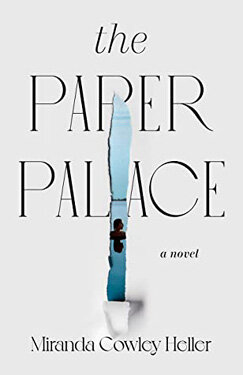How do we deal with the knowledge that an innocent man was executed by the state because of the colour of his skin? The response from many people in Britain would most likely be that this was a form of institutionalised racism which isn't found here today. Or you might find this fact sadly unsurprising given the way non-white men are still profiled and marginalized in this society – as depicted in “Open Water” by Caleb Azumah Nelson. In her novel “The Fortune Men” Nadifa Mohamed fictionalizes the case of Mahmood Mattan, a Somali-born merchant seaman who was arrested and executed for the murder of a shopkeeper in 1952 despite overwhelming evidence proving his innocence. With emotive detail she depicts the diverse community of Cardiff's Tiger Bay with its West Indian sailors, Maltese businessmen and Jewish families. Mahmood is a petty thief and a gambler who is far from saintly, but he's not a murderer. The question which drives this story isn't so much whether or not Mahmood can get a fair trial, but why was he persecuted and how are immigrants and non-white individuals still persecuted today?
What's so powerful about Mohamed's style of writing is the intense way she depicts how Mahmood's perspective and state of being is shaped by the social attitudes around him. He has learned to physically shrink himself in different ways such as making himself invisible to avoid racist abuse or how his stomach has shrunk so that he won't feel hunger so acutely. At any moment he's aware that he might be the victim of vicious malice by a passing stranger because of his appearance and that there will be no recourse for the abuse which is inflicted upon him. He consciously avoids witnessing certain things because he knows “It doesn't pay to see something you're not meant to.” Mohamed also gives considerable space in this story to the perspective of a Jewish family who experience a tragic and violent loss which occurs while they're at home. The agonizing pain of their situation and the hard-won freedom they've found in this Welsh community after emigrating from Eastern Europe is sympathetically shown. The author evokes how these different factions of Tiger Bay live and work within the constrained limits of a larger power structure.
I think it's important how Mohamed chose to highlight and write a novel about this case from history rather than create a fictional character who is purely virtuous. Mahmood gambles with money he gets from benefits. He shoplifts items to give to the people he loves. He's capable of invoking the same racial slurs which are inflicted upon him. His marriage deteriorated and he doesn't always support his children as much as he should. The challenges and tribulations of his childhood and young adulthood are dynamically recreated in the middle of this novel so we get an understanding of how this is a man that's learned to ride the wave of chance and do what he has to in order to survive. He is not perfect, but, like all of us, he strives to be a better person and likes to imagine he's a more upright citizen than he is. Since he intrinsically knows this Mahmood believes the justice system of this country will see it too and doesn't see the need to defend himself against charges which are patently false. But the police need a culprit, the courts have found a scapegoat and the community is willing to lie in order to get a reward. This is the tragedy which leads to his execution and no one would accept such an injustice if it happened to their own son, husband or father. So why do we accept that it happened to Mahmood?

























